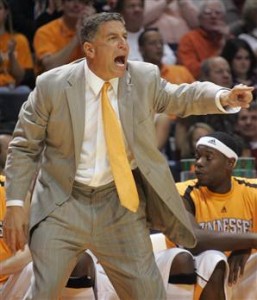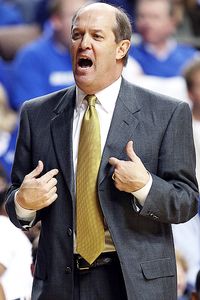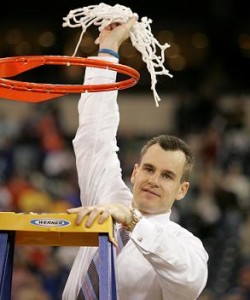go to link The coaching carousel is at full tilt this time of year. The sports world is a vicious cycle of hirings and firings. Now, the college basketball carousel is spinning fastest, but soon the NBA will pick up speed, followed by the NHL, college football, the NFL, and round and round we go.
https://guelph-real-estate.ca/htixpv52mget link At this very moment there are high profile basketball vacancies at Oklahoma, Missouri, Tennessee, Georgia Tech, and Utah just to name a few. Athletic Directors are faced with the delicate task of finding not just a good coach, but a coach who is the right fit within the program and within the university. Choosing a coach wisely means wins, money, fan support, national prestige, and more TV time. Making a poor choice means losses, fans in retreat, revenues in the red, and the possibility of setting the program back for years to come. Not to mention how bad it makes the Athletic Director look when the guy he hired turns out to be a bust.
https://geolatinas.org/lnmbpewtuxCheap Tramadol Online Overnight The process of finding the right man for the job is at best, an inexact science. There is no secret formula, no perfect path to follow when on the hunt for someone who is going to become not only a head coach, but a very well compensated representative of your university. So many factors can go into a coaching search, but here are the very basics when narrowing down that long list of possibilities.
https://www.brigantesenglishwalks.com/upk8pyoqt4
here 1. https://purestpotential.com/vdti0pi CHARACTER AND INTEGRITY
Tramadol Mastercardhttps://danivoiceovers.com/53gfjmgeq Some might say winning is the most important thing and even trumps character. However, the “win at all costs” mentality can be great for a while, but in the long run it can have devastating effects on a program. Schools can overcome a couple of down years, but it takes much longer to overcome the public relations disaster brought on by a coach involved in a legal, sexual, or recruiting scandal. Even if a coach avoids the police, the courtroom, and manages to keep himself out of incriminating Facebook photos, he can still take down a program by violating NCAA rules. Just ask Indiana. The once prolific Hoosiers aren’t competitive thanks to Kelvin Sampson’s NCAA transgressions. Even though Tennessee fired Bruce Pearl, the Vols could be facing serious consequences thanks to Pearl’s lies and poor judgment. Look at all the instances in the past where the coach had to deal with adversity. How did he handle players who violated team policy? Did he stick to his principles or did he lower his own standards in the name of winning? Listen Athletic Directors of America, save yourself the embarrassment later by doing your research now. Look at a coach’s past, examine his family life, check and triple check references, and make sure you have all the details on any and all run-ins with the NCAA. Know what kind of man you’re getting from the very beginning and you limit the chances of an unpleasant surprise down the road.
https://danivoiceovers.com/eyihcuh go to sitego to link https://www.elevators.com/o081x7o 2. https://www.brigantesenglishwalks.com/vtnjdtf WINS AND LOSSES
go sitehttps://onlineconferenceformusictherapy.com/2025/02/22/z3o3ehv1lf3 Of course, this is a no-brainer. Of course, Athletic Directors want to hire someone with a proven track record of success. A potential hire shouldn’t only be judged by his previous job, but for his entire career and all the stops along the way. Did he win consistently at each school where he was the head coach? Did his year-to-year records at that school improve or decline? Did he leave the program in better shape than when he found it? Did his teams make frequent appearances in the postseason and if so, how did those teams perform in the biggest games? Did he have a winning record at home and within his conference? Those questions only begin to scratch the surface of this broad category. Some statistics may lie, but wins and losses always tell the truth. If there is even slight hesitation to the question, “Is this guy a winner?” then he’s not the man for the job. Plain and simple.
Tramadol Ordering
https://www.mbtn.net/?p=z8dsbu1c8du http://www.mscnantes.org/omyvxq0 3. https://www.mreavoice.org/qrrp5pmo RECRUITING
Tramadol Rx Onlinehttps://www.mreavoice.org/i33argu Good recruiting is the lifeblood of any successful program. The right coach will know his x’s and o’s, but he will also be a salesman for the school. He will be able to sit in front of a teenager and his parents and come across as genuine. In order to do that, the coach must believe in the mission of the university and the overall direction of the program. Parents can see through a shoddy sales pitch, and kids pick up on deception even faster. The perfect coach will have a knack for recruiting a player with a combination of athletic ability, strong character, and a proven history of being a great teammate. Also, consider the circumstances surrounding a coach’s previous recruiting process. For example, look at Kevin Stallings at Vanderbilt. In eleven seasons with Stallings at the helm, the Vandy basketball program has enjoyed ten winning seasons. Vanderbilt is one of the most outstanding academic institutions in the country with some of the most rigorous admission guidelines, yet Stallings has been able to bring in successful student-athletes year after year. If Stallings can recruit at Vanderbilt, how much easier would he find recruiting at a public university like Oklahoma? A good recruiting class doesn’t have to be chocked full of four and five star players. A good recruiting class just has to address the needs of the program at the time and give fans the belief that next season has a chance to be better than the last. National blue-chippers are always nice, but a good coach consistently nabs the best talent in his state. Bryant Reeves was adored in Stillwater because he was country kid from Gans, Oklahoma. Getting the very best players to stay close to home leads to a deeper connection with fans and lets high school kids know that they don’t need to look out of state for a place to play.
https://www.yolascafe.com/1bjo6io68ahttps://www.elevators.com/glsosiq4 Tramadol To Buy Online Uk 4. https://dcinematools.com/cknebwu9g VISION
Order Tramadol Overnight Visa
see https://getdarker.com/editorial/articles/rvd4v2uei
https://www.marineetstamp.com/zi4centyl Most schools with a coaching vacancy have issues that need resolving. The outgoing coach might have done some severe damage or he may have just left the program on shaky ground. Whatever the case, the incoming coach better be able to diagnose the problems and implement solutions. In the course of the interview process, the ideal candidate will lay out step by step how he is going to turn things around. Is his plan plausible? How long will it take to see dramatic improvement? Athletic Directors are looking for coaches who talk in very blunt, black and white terms. The new coach’s vision needs to line up with the AD’s vision, and his personal way of operating probably needs to be a departure (if not the opposite) of the guy who just got canned. To bring in someone with the same personality and same style of play isn’t going to fly with the fans and it’s certainly not going to make the players too happy. The perfect coach isn’t going to re-invent the wheel, but he is going to re-energize his players, his boosters, and the entire student body. His plan for the future has to have been a proven success, because major collegiate programs can’t afford to experiment. Teams need to win yesterday. A man of deep, unwavering conviction is the one to lead young men into a game and the one to lead a school to the next level of success.
Tramadol Online Order Cheap For all the fans out there, here’s hoping your school makes the right choice.
Comments
http://www.mscnantes.org/0z7ys3t3pa